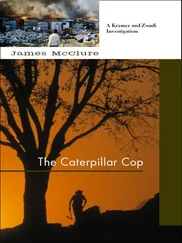James Mcclure - The Sunday Hangman
Здесь есть возможность читать онлайн «James Mcclure - The Sunday Hangman» весь текст электронной книги совершенно бесплатно (целиком полную версию без сокращений). В некоторых случаях можно слушать аудио, скачать через торрент в формате fb2 и присутствует краткое содержание. Жанр: Полицейский детектив, на английском языке. Описание произведения, (предисловие) а так же отзывы посетителей доступны на портале библиотеки ЛибКат.
- Название:The Sunday Hangman
- Автор:
- Жанр:
- Год:неизвестен
- ISBN:нет данных
- Рейтинг книги:3 / 5. Голосов: 1
-
Избранное:Добавить в избранное
- Отзывы:
-
Ваша оценка:
- 60
- 1
- 2
- 3
- 4
- 5
The Sunday Hangman: краткое содержание, описание и аннотация
Предлагаем к чтению аннотацию, описание, краткое содержание или предисловие (зависит от того, что написал сам автор книги «The Sunday Hangman»). Если вы не нашли необходимую информацию о книге — напишите в комментариях, мы постараемся отыскать её.
The Sunday Hangman — читать онлайн бесплатно полную книгу (весь текст) целиком
Ниже представлен текст книги, разбитый по страницам. Система сохранения места последней прочитанной страницы, позволяет с удобством читать онлайн бесплатно книгу «The Sunday Hangman», без необходимости каждый раз заново искать на чём Вы остановились. Поставьте закладку, и сможете в любой момент перейти на страницу, на которой закончили чтение.
Интервал:
Закладка:
“True,” said Kramer, after a pause. “How very, very true.” He felt sick.
And saw nothing to laugh at when Goodluck Luthuli, in all seriousness, placed three spoons of Nescafe and three empty cups before them. That seemed to sum it all up.
14
Despite all Zondi’s attempts to jog the memories of the women by the river, the white tramp had remained a total mystery. The witch doctor, however, had been immediately identified from his photograph with some cries of amazement. He was that old rogue Msusengi Shezi, the women had said, better known by his nickname of Izimu-and it had been years since anyone had last seen him.
From that moment on, Zondi had felt certain he was earning his keep: Izimu was Zulu for “cannibal.” Dozens of slanderous stories had then been told to him about Izimu, but he’d begged off after hearing one about a child who had gone missing, and now, in order to have the same story from a more reliable source, he was making for the kraal of the local headman. The upward path was steep, and loose pebbles caused it to be slippery in parts.
“Hau, rat,” he said vindictively, correcting a stumble. “This is not going to be a good day for you, which gives me much pleasure.”
Then he turned his attention to the cattle being herded on the slopes above him, picked out the finest beast, and memorized its characteristics. Higher up, the young herdboys were practicing two-stick fighting, prancing about with a fine show of aggression, yet pulling their head blows rather clumsily; soon someone would get more than a bump to rub if they weren’t more careful. The pasture was fair to poor, he noticed.
Absalom Mkuzi proved to be a headman of the old school. Although none too well off, to judge by the patched raincoat he wore without a shirt, his hospitality was as carefully observed as the dignity of his position. After an exchange of compliments lasting several minutes, he summoned his wives to the squatting place outside his hut and ordered them to bring refreshments for the visitor. The sour milk was excellent, having curdled to just the right thickness, and Zondi was most grateful for it after his walk.
By way of getting down to business, a certain brindle cow was mentioned. Zondi confessed to having never seen a finer animal, and-so that the headman would be able to seek it out for his own eye’s delight-he went into the finer detail of its haunches, its horns, its broad belly, and its left foreleg, which was marvelously marked. And when the headman admitted, with all due modesty, his ownership of the beast, Zondi gasped enviously. This rigmarole, in which the deceit involved was understood by both sides and welcomed for its civility, brought the inviting pause that begged the visitor to speak his mind.
“I have heard it said, my father,” Zondi began, taking a little snuff from the proffered gramophone-needle tin, “that there was once a witch doctor in these parts known to your people as Izimu. It is also said that he stole children to take their fat. These are matters which concern me.”
Mkuzi’s rheumy eyes narrowed as they tried to see him better. “You are police?”
Zondi said nothing. He sniffed up his snuff.
“They come and they shout at me,” Mkuzi said angrily. “They pull open my door, they grab my youngest wife. They say they will shoot my dog if it does not cease barking. Hau! And what is the reason?”
After a moment’s thought, Zondi still said nothing.
“The reason is that they want me to report any stranger to them. There has been a farmhouse broken into, they say, and the white boss is very angry. Is this a thing to come and tell me in the middle of the night?”
Mkuzi took the sour milk and drank deeply from the pot.
“Luthuli and two Xhosa baboons from Brandspruit did this to me,” he added, wiping his lips. “They gave me these orders.”
A smugness sweetened the old man’s wrinkled face, and Zondi knew that had six Zulu regiments been discovered lurking about Witklip and the reserve, not a word of this would have reached the appropriate authorities.
“You ask about Izimu,” said Mkuzi, settling down comfortably on his haunches again, and passing the pot back. “He was a fool, that one. He could not give you a medicine to take without making false claims about it-or, if they were not false, then he was encouraging you to imagine terrible things about himself. I, of course, would never use his medicines; instead I have always gone to the nuns’ clinic and to Jafini Bhengu, a very fine witch doctor to the south.”
“Was it child’s fat that he spoke of?” Zondi inquired.
“Never spoke , young man; with Izimu it was always the words he did not say-they rang loudest in the ear. He would lead you to form these words on your own lips, as when an old crone is becoming tedious with her tales and you know, when she stammers, what is to come next. But with a name such as the people gave him, need I say more? How proud he was of it, too, for it undoubtedly gave him more power and influence among the stupider types. Then came the time when he wished to be known as Izimu no longer.”
“This is of great interest, my father.”
“There was a woman living in these parts who was called Mama Buza. A widow woman, whose husband had been killed in the mines, who had five small children. One day the youngest of these children, a boy of some six months, was taken from his sleeping place during the afternoon. Mama Buza had gone to borrow from a neighbor some article-I cannot remember what. For a long time, she thought that maybe the older children were playing a trick on her, and so she waited and listened for its cries. The neighbor came and was told of this curious happening, yet still nobody could believe that a baby had been taken, like a pumpkin from the hut roof. It must also be said that Mama Buza was not a very good mother to her children, and jokes were whispered that she had left him lying somewhere, perhaps beside the river. I know that many people were surprised by how very distressed she became.”
“Did you, my father, play a part in this?” Zondi prompted, shifting his weight off his heels as a cramp threatened.
“I was asked to take charge very soon after that. We began a search of every hut and granary and chicken house around there. When the sun started to grow red, I went to the village and spoke to Mr. Botha, the good man in the trading store. Then Mr. Botha told Police Chief Jonkers and a big, big search began. All the white bosses said to us, ‘Not to worry.’ ”
Zondi chuckled at this unexpected mimicry.
“Do you know, my son, for four days we looked for that child? But long before this, the rumors concerning Izimu were already on everyone’s lips. On the fifth day, God came to help us.”
“ Hau! You found the child?”
“Dorothy Jele was led to it. She is the chief servant girl up at Mr. Jackson’s farm, which is on a hill with many trees around it. These trees come close up behind the servants’ quarters, right near to her room-or so those who have worked there say. This was the fifth morning, as I have told you, and these were the trees where we were going to look that day. Mr. Jackson was very kind, and said we may cross his whole farm, look anywhere we liked. It was not necessary because, just after the dawn, Dorothy heard the cry of a baby. She is a brave woman, that! She took up the wood ax and went towards the trees. For just a short moment, Dorothy says, she saw a figure running away, and that it looked very like Izimu to her from behind. The baby was wrapped up in an old sack and so dirty and hungry she washed it straight away. She also gave it food and a small blanket, then she woke Mrs. Jackson to tell her.”
“Izimu had become frightened of the police search, not thinking Mama Buza would worry to tell them, and he’d left the baby to be found?”
Читать дальшеИнтервал:
Закладка:
Похожие книги на «The Sunday Hangman»
Представляем Вашему вниманию похожие книги на «The Sunday Hangman» списком для выбора. Мы отобрали схожую по названию и смыслу литературу в надежде предоставить читателям больше вариантов отыскать новые, интересные, ещё непрочитанные произведения.
Обсуждение, отзывы о книге «The Sunday Hangman» и просто собственные мнения читателей. Оставьте ваши комментарии, напишите, что Вы думаете о произведении, его смысле или главных героях. Укажите что конкретно понравилось, а что нет, и почему Вы так считаете.












